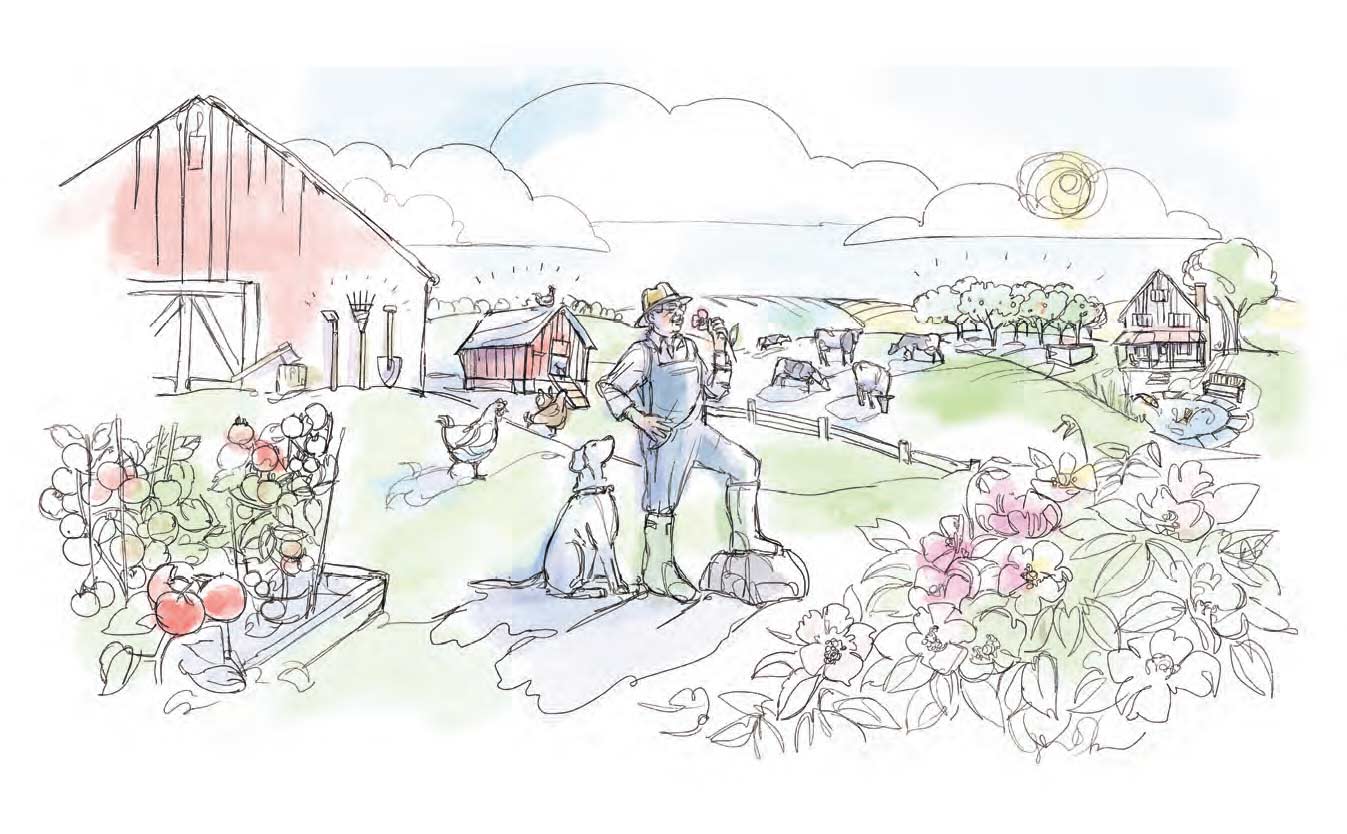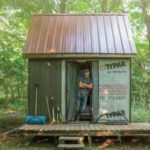
The chief purpose of a country property is to be looked after. I knew this as a young man, long before I bought my own place. When I was a student, my friends often invited me to join them for a weekend in the country because they knew I was a willing worker and didn’t flinch at the to-do list their parents presented at the breakfast table on Saturday mornings. Half the kids who were supposed to be home to help would beg off with some feeble excuse or other, because they’d rather be anywhere else than the “prison farm.” Their parents were lawyers and bankers who enjoyed organizing work parties and barking orders. Mowing lawns and mucking out stalls can be tedious enough. Not being paid for it was a tipping point for desertion.
I know summer cottages have their work parties too. The May 24th opening and the Thanksgiving closing are command performances where attendance is strictly enforced. But that’s it. The rest of the time is set aside for sunbathing and Trivial Pursuit. A country property, on the other hand, always perches on the precipice of chaos. After a three week absence, the jungle reclaims its own.
So when I bought Larkspur Farm in 1978, I made a vow never to make a chore of it and find myself becoming resentful. I would work at a thing until I tired of it, and then give myself permission to down tools and do something else until the spirit returned. I did this for 10 years until it became a deeply ingrained habit, one that bothered the hell out of some people, but also helped me become a happier writer.
Robertson Davies once observed that the problem with the humorist Stephen Leacock was that he suffered from a very strong work ethic. He kept going on and on in spite of all obstacles, when it might have been better if he had just sat down and waited for a good idea. I often tell my writing students that they are unlikely to get better at writing, but it is possible to get better at not writing. To do it you must first learn to conquer your wretched willpower.
My wife took a while to board the train on this subject. By nature she is impatient with waiting for the spirit to move a man. Over the years we have achieved a delicate balance. She likes to landscape with a riding mower and I like to putter with broken machinery, so we are a fairly good match.
As a poet once wrote, “Something there is that doesn’t love a wall, that wants it down.” I would add that it doesn’t love a two-stroke engine either or a water pump or any other moving part on a farm. If you need any evidence that the universe is cooling off, slowing down and wearing out, then you should come here for the weekend. After 42 years I find myself surrounded by mountains of repairs and unfinished projects.
Now the quarantine has handed me the gift of unlimited time to finally get down to all this work with no excuse to slide into town or go back to the desk to meet a deadline. For the first time in four decades I have finally gotten around to chores that normally slip away forgotten every season. I have pruned and staked tomatoes before bottom rot strikes. I have installed a new washer on a garden tap that has dripped for 10 years. The goldfish pond has a new waterproof liner. Shovels, axes, rakes and hoes have new handles. The apple trees are pruned. Three bush cords of firewood are stacked beside the house. Fifty meat birds and two pigs lie in the freezer. The henhouse even has a new coat of paint. The term we use in the writing profession for such a burst of non-essential activity is “avoidance behaviour.” One writer I know has turned out two drafts of a novel in the same amount of time.
I read everywhere that the pandemic is going to change the way we live and work for a long time to come. I have my doubts about that. The headlong rush with all its noise and fuss will inevitably return. In the meantime, I will remember the summer of 2020 as a very odd and productive blip that forced me to pause and smell the roses … and prune them for once.
Story by:
Dan Needles
Illustration by:
Shelagh Armstrong




